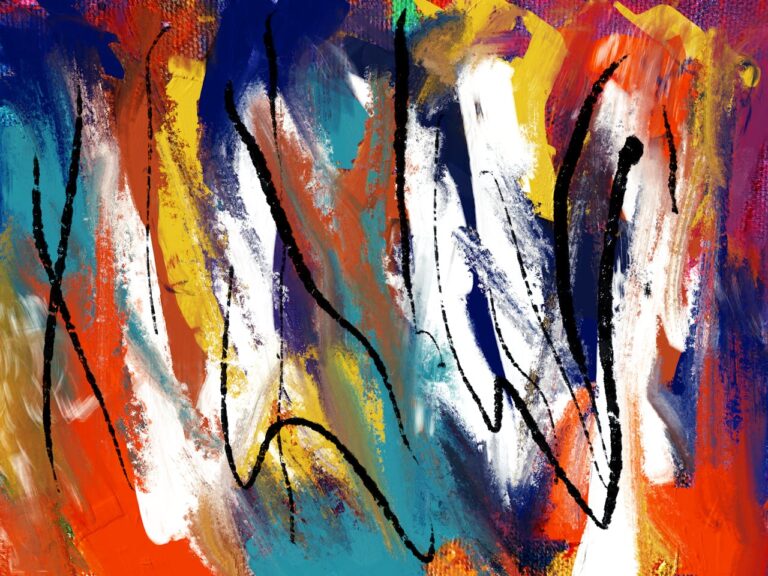Naomi and Ruth lived during the period of the Judges, probably during the time of Gideon, around 1200 B.C. Their story is told in the Book of Ruth in the Bible. Set among the Old Testament books of History and Prophets, we find a narrative that spotlights the real-life struggles of Israelite families at that time. The bitter trials Naomi and Ruth endured were tempered by God’s provision.
The era of the Judges was a harsh, violent period in history. The Israelites had never completely driven out the original inhabitants of Canaan as God had demanded, resulting in centuries of unrest. Cycles of disobedience and obedience to God, weak or incompetent leaders, and constant wars added to the suffering then and now.
Yet Naomi was faithful to God and to her family, even under duress.
Naomi lived in Bethlehem with her husband, Elimelech, and two sons, Mahlon and Kileon. Because of a long-lasting famine, Elimelech took his family about thirty miles away, looking for a better life. They settled in Moab (Northern Jordan today). But sorrow followed Naomi. During the ten years they lived there, Elimelech died, leaving his wife, Naomi, with their two sons. Her two sons took Moabite women, Orpah and Ruth, as wives, but the sons also died, leaving Naomi without family and in a foreign land. Life had turn out to be hardly better for Naomi in Moab, far from family and friends.
“The era of the Judges was a harsh, violent period in history.”
So when she heard the Lord had sent food to Judah, Naomi decided to return to a town in Judah called Bethlehem. She reasoned that it could not be any worse in Judah.
She released Ruth and Orpah from any responsibility to stay with her and urged them to go back to their own people and their own gods. The Moabite gods were Chemosh, to whom they offered human sacrifices, and Baal-Peor, for whom they practiced sexual rites of worship. In her despondency, Naomi was willing to send Orpah and Ruth back to their own people to find husbands, even though those people worshipped idols.
This action of Naomi may offend the sensibilities of evangelistic Christians. How could Naomi so reject her God that she would be willing to send these women back to idol worship and all that went with it? Under the law, salvation was not a concept that the Israelite nation understood in the same way we do; they knew only the promise of a Savior. Nor did they understand forgiveness of their sins through Him. But they did know that idol worship was corrupt and resulted in a debased culture. They also knew that God abhorred idol worship. But she admitted that she blamed God for her situation, declaring, “…the Lord has testified against me and the Almighty has brought calamity upon me…” (Ruth 1:21, NET).
“Naomi decided to return to a town in Judah called Bethlehem.”
Naomi may have reasoned out her decision to send the women back to their people on these facts:
- Jews and Moabites were not to mix. Perhaps Naomi felt that God was punishing her because of her sons’ marriages.
- According to Jewish law, Naomi would need to provide husbands for them. She might have felt burdened for them because she had no way to do that, nor could she provide for their care.
- This woman had been a caretaker for most of her life. It is a difficult adjustment when aging or some other life situation leaves one unable to fulfill that role any longer. Even worse is to realize the “caretaker” may need to be taken care of. Often it is not seen as a relief, and some want to hang on to that control. Emotionally, it can be easier to break the relationship off than it is to allow the roles to switch.
During deep despair and depression, thinking becomes muddled, and decision-making abilities are impaired. Who sees a benevolent God when one is sinking into a black hole? And a “black hole” is exactly where Namoi saw herself. Her name meant “princess,” but she exclaimed, “Call me Mara!” (a word meaning “bitter” (1:20). Would the fact that Naomi still had Orpah and Ruth in her life make up for her losses?
Anyone who has lost a spouse and children knows that nothing can make up for such a loss. However, a wise person will allow God to minister to them in his own way.
“Who sees a benevolent God when one is sinking into a black hole? And a “black hole” is exactly where Namoi saw herself.”
When Naomi explained her plans to Orpah and Ruth, Orpah eventually complied and returned to her people. However, Ruth clung to Naomi and refused to leave her. In his book Opening Up Ruth, Jonathan Prime suggests some things about Naomi that would have been attractive to Ruth:
- She was a woman of prayer: Ruth 1:8-9 reveals two prayers (“May the Lord…”). Although she was desperate, she was not faithless.
- She believed that any good thing is a gift of the Lord’s kindness. She recognized that if they were to find husbands, it would be a kindness from the Lord.
- She acted unselfishly (in her own mind). She knew she could not provide for her daughters-in-law, and she did not want them to sacrifice their future. She felt they would have better chances with their own people. The only thing she could give was her blessing because that was all she had left.
- She had a balanced view of God. She knew the Lord is Sovereign and that he disciplines his people. (This may imply that she feared the move to Moab had been a bad move.)
- She had an attractive faith. Both Ruth and Orpah clung to her, and even when she urged them to stay in Moab as she left them, Orpah complied only reluctantly.
“Ruth clung to Naomi and refused to leave her.”
It is here that we learn that Ruth was a strong, decisive woman. When Naomi gave her ultimatum, Ruth “put her foot down.” Her declaration has become a standard for faithfulness and devotion:
But Ruth said, “Do not urge me to leave you or to return from following you. For where you go, I will go, and where you lodge, I will lodge. Your people shall be my people, and your God my God. Where you die, I will die, and there will I be buried. May the Lord do so to me and more also if anything but death parts me from you.” And when Naomi saw that she was determined to go with her, she said no more.” (Ruth 1:16-18, ESV)
This was an amazing statement: Your journey? My journey. Your home? My home. Your people? My people. Your God? My God. Your future? My future. Her words are an excellent picture of the attitude we should have when we make marriage vows—and when we accept Christ as our Savior. Ruth was ready to change her whole identity. She would leave everything about her old life behind and would accept a completely new life. Ruth’s new life in Bethlehem testified to the fact that she had understood exactly what she was doing when she made that commitment to Naomi.
“For where you go, I will go, and where you lodge, I will lodge. Your people shall be my people, and your God my God.”
Wearing bitterness on her sleeve, Naomi arrived in Bethlehem with Ruth and found a way to live. She either had a dwelling she could return to, or she was given shelter. But here at least, she was among friends, and family. God soon brought new blessings to the women. Ruth, determined to help her mother-in-law, accepted her advice to go to glean in the fields of Boaz, a relative of Elimelech. Boaz was impressed with Ruth and life dramatically changed for the two women.
Ruth’s faithfulness and kindness provide us with pictures of God’s faithfulness and kindness. She was not only a representative of those things, but she was also Naomi’s security. She was a devoted companion to Naomi, even after life changed for the better. Elimelech’s relative Boaz noticed the work ethic of the young woman and not only allowed her to glean in his fields but told the workers to leave a little extra grain for her. Ruth’s kindness was demonstrated by how she willingly worked to provide for herself and for Naomi.
When Naomi saw the amount of grain that Ruth brought home, she knew Ruth had left an impression on Boaz. Ruth had collected an ephah, almost a bushel which was enough grain for two people for about a week. This was a generous amount for a gleaner to collect. Naomi exclaimed: “May he be blessed by the Lord, whose kindness has not forsaken the living or the dead!” (Ruth 2:20a, ESV) This shout for joy might have signaled a “light bulb moment” for Naomi.
“Ruth’s faithfulness and kindness provide us with pictures of God’s faithfulness and kindness.”
Naomi acknowledged that God had not forgotten her after all because the outcome had God’s fingerprints on it. “The man is a close relative of ours, one of our redeemers” (2:20b, ESV). God was honoring her dead husband as well as showing kindness to Naomi and Ruth. In saying “he is one of our kinsman-redeemers,” Naomi was clearly claiming Ruth as her own.
Naomi used the word hesed, translated as kindness in the NIV (“whose kindness has not forsaken…”. Hesed is much more than kindness. It is a rich and full term describing love, mercy, benevolence, and covenant faithfulness. This is a direct answer to Naomi’s prayer for Ruth in chapter 1, verse 8 (ESV): “May the LORD deal kindly with you, as you have dealt with the dead and with me.”
The “kinsman redeemer” (goel or gaal) term referred to God’s instructions about how relatives should care for the widows who have no sons, as well as for destitute relatives. The duties of the kinsman according to Daniel Block in his commentary on Judges and Ruth,[1] are:
- to ensure that the hereditary property of the clan never passes out of the clan.
- to maintain the freedom of individuals within the clan by buying back those who have sold themselves into slavery because of poverty.
- to track down and execute murderers of near relatives.
- to receive restitution money on behalf of a deceased victim of a crime.
- to ensure that justice is served in a lawsuit involving a relative.
The Israelite provision for goel is based upon an assumption of corporate solidarity and the sanctity of the family/clan. The custom of redemption was designed to maintain the wholeness and health of family relationships, even after the person had died.
“The custom of redemption was designed to maintain the wholeness and health of family relationships, even after the person had died.”
Once again, we see a template for our saving relationship in Christ—an explicit picture of the work of redemption in Jesus Christ. The kinsman redeemer assumes a person or property that “belongs to the family” has been lost or taken. So he must be bought back to be restored to the rightful place or owner. In an eternal sense, God is our rightful owner and Jesus bought us back with his life.
Because the redeemer literally saves lives, as much as it has to do with continuing the bloodline, he represents the Savior. However, there can be no heirs when the people capable of bearing children have all died. At this point in time, God used the kinsman redeemer to protect the Jewish bloodlines that carried his Treasure, the seed of a woman, our Messiah.
Naomi then devised a scheme that would press Boaz to accept his responsibility to her husband’s family. She instructed Ruth to bathe and prepare herself to approach Boaz while he was asleep. Covered in her cloak, she lay at his feet on the threshing floor until he woke up. When he discovered her there, he asked what she was doing.
“I am Ruth, your servant,” she replied. “Spread your wings over your servant, for you are a redeemer” (Ruth 3:9, ESV).
“Naomi then devised a scheme that would press Boaz to accept his responsibility to her husband’s family.”
These words implied that Ruth would accept a marriage proposal. Boaz expressed his delight:
“May you be blessed by the Lord, my daughter. You have made this last kindness greater than the first in that you have not gone after young men, whether poor or rich. And now, my daughter, do not fear. I will do for you all that you ask, for all my fellow townsmen know that you are a worthy woman. And now it is true that I am a redeemer.” (Ruth 3:10-12, ESV)
Boaz accepted his responsibility for Naomi so he could legally marry Ruth. After he went through the steps necessary to make her his wife, he welcomed Naomi into his home as well. When Ruth bore Boaz’s son, Obed, her friends expressed their joy for Naomi’s blessing:
“‘Praise be to the Lord, who this day has not left you without a guardian-redeemer. May he become famous throughout Israel! He will renew your life and sustain you in your old age. For your daughter-in-law, who loves you and who is better to you than seven sons, has given him birth.’ Then Naomi took the child in her arms and cared for him.” (Ruth 4:14-16, NIV)
Naomi’s old life, with her husband and sons, was gone. But she discovered that God simply made her a new life—complete with a family, rich in love. Her daughter-in-law, Ruth, was proclaimed to be better than seven sons, not better than her own two beloved sons, but better than seven more sons. God had provided for Naomi through Ruth, better than she could have imagined, at such a time and place in her life.
“Praise be to the Lord, who this day has not left you without a guardian-redeemer.”
Sorrow and frustrations often cause wrong conclusions about God—conclusions that Naomi expressed. Grieving is natural and reparative, but bitterness is not. Nonetheless, even though it began in bitterness, Naomi and Ruth’s story reveals some blessed nuggets of truth:
A kind and loving Father understands human expressions of grief and sorrow. The Psalmist was not afraid to take his sorrow to God: “Listen to my prayer, O God, do not ignore my plea; hear me and answer me. My thoughts trouble me and I am distraught” (Psalm 55:1-2, NIV). God sees the heart. Naomi’s words reveal that she has not rejected God, even though she feels rejected. A child who is angry at a parent may shout and cry and complain. But this will not cause a loving parent to reject a child.
God had placed treasures in her life all along, but they were hidden in the depths of sorrow. Ruth was a treasure that Naomi did not immediately recognize. We now know that the treasure from Naomi’s life has gone on to bless all humanity. The child, Obed, became grandfather to David. Thus, Boaz was the great grandfather of David in the lineage of Jesus:
“And the women of the neighborhood gave him a name, saying, ‘A son has been born to Naomi.’ They named him Obed. He was the father of Jesse, the father of David.” (Ruth 4:17, ESV; see Luke 3:22)
And thus Boaz and Ruth became ancestors of Jesus, our Hope and our Savior.
“And thus Boaz and Ruth became ancestors of Jesus, our Hope and our Savior.”
Do not think that God is any less interested in your life just because you live in a bitter or unfortunate life situation. Ruth was a Moabite, a non-Jew. This shows us that the kindness of God reaches to and through the entire world. He is more than interested in you: he longs to dwell in you. God redeems circumstances in the most unpredictable ways. Thus, even in our grief, let us turn to God our Redeemer.
[1] Daniel I. Block, Judges, Ruth: An Exegetical and Theological Exposition of Holy Scripture, vol. 6, The New American Commentary (Nashville: Broadman and Holman, 1999).











